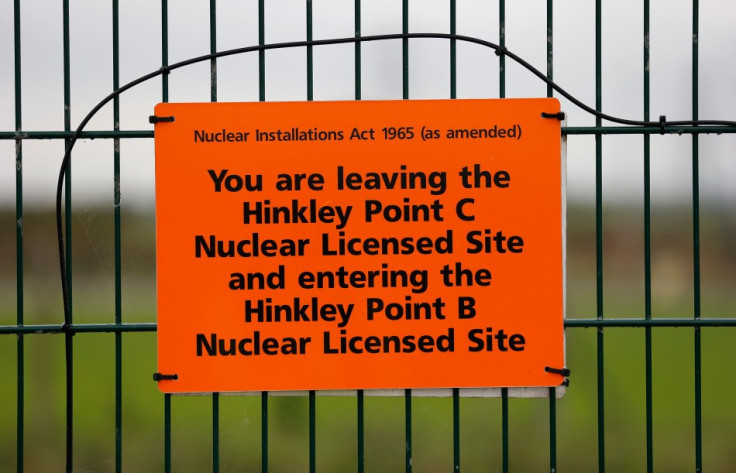UK Granted First Nuclear Power Plant in a Generation Despite Accusations of 'Illegal State Aid'

The UK has been given the green light from Brussels to build its first nuclear plant in a generation – the £16bn facility at Hinkley Point, which will be run by the French utility giant EDF.
The European Commission this morning (8 October) ruled that the £10bn in government credit guarantees do not constitute illegal state aid, despite the fact that EDF will be able to sell electricity to the grid at about twice the current wholesale market rate.
The government will pay EDF £92.50 per MWh for 35 years. 60% of any profit EDF turns above 13.5% for the expected 60-year lifespan of the project will be returned to the government, however this has not shielded the arrangement from scathing criticism from officials, NGOs and energy lobbyists.
Hinkley Point C nuclear power plant in Somerset had previously been questioned by the commission, which said it risked wasting up to £17.6bn in taxpayer support, claiming that the station would turn a profit without government financing.
The commission voiced concerns that EDF, which posted revenues of more than £4bn last year, will be completely shielded from any operational risk, forcing the UK government to make amendments to the proposal which, while undisclosed, are thought to have increased EDF's exposure to risk.
The plant has faced serious opposition from lobby groups across the energy and environmental sectors. Greenpeace has previously described the government's support for the plant as "the heist of the century" and has this morning come out strongly against the commission's decision.
"This is a world record sell-out to the nuclear industry at the expense of taxpayers and the environment. It's such a distortion of competition rules that the commission has left itself exposed to legal challenges. There is absolutely no legal, moral or environmental justification in turning taxes into guaranteed profits for a nuclear power company whose only legacy will be a pile of radioactive waste. This is a bad plan for everyone except EDF," said Greenpeace's EU Legal Adviser Andrea Carta.
Green campaigners are concerned that EDF has not agreed on any payment towards the disposal and decommissioning of the radioactive waste the project will generate, and also that it has been given UK government insurance against any future alterations to the country's energy or environmental laws which could lead to an increase in costs.
The European Photovoltaic Industry Association (EPIA) has said the level of government subsidy flies in the face of efforts to roll out renewable energy projects across Europe.
CEO James Watson said: "How can the European Commission ask renewables to integrate in the energy market, while at the same time validating another subsidy to nuclear. EPIA previously raised concerns about the state aid rules as they force renewables to integrate into a market that is not yet designed for them. We need new energy market rules that allow for a cost-effective energy transition, not £17.6bn of subsidies for nuclear power."
Despite the apparent clearance from the commission, the project may not yet be out of the woods. The Austrian government has already signalled its intent to challenge the decision in the courts.
In a letter to the European Commission President Jose Manuel Barroso, Chancellor Werner Fayman and Vice-Chancellor Reinhold Mitterlehner said: "Hinkley Point ... would set a negative precedence to open this type of subsidy for nuclear energy. The EU Commission must prevent this, if not it must expect a lawsuit from Austria at the European Court of Justice."
Meanwhile, business leaders have welcomed the commission's decision. John Cridland, CBI Director-General, said: "The European Commission's green light for Hinkley Point is a significant milestone in the UK's energy future. Hinkley should set the ball rolling for the UK's nuclear new build programme, putting us on the right path to achieving a secure and sustainable energy mix. It represents a real opportunity for growth, with the potential to create tens of thousands of jobs for people – not just in the local community, but up and down the whole country."
© Copyright IBTimes 2025. All rights reserved.






















